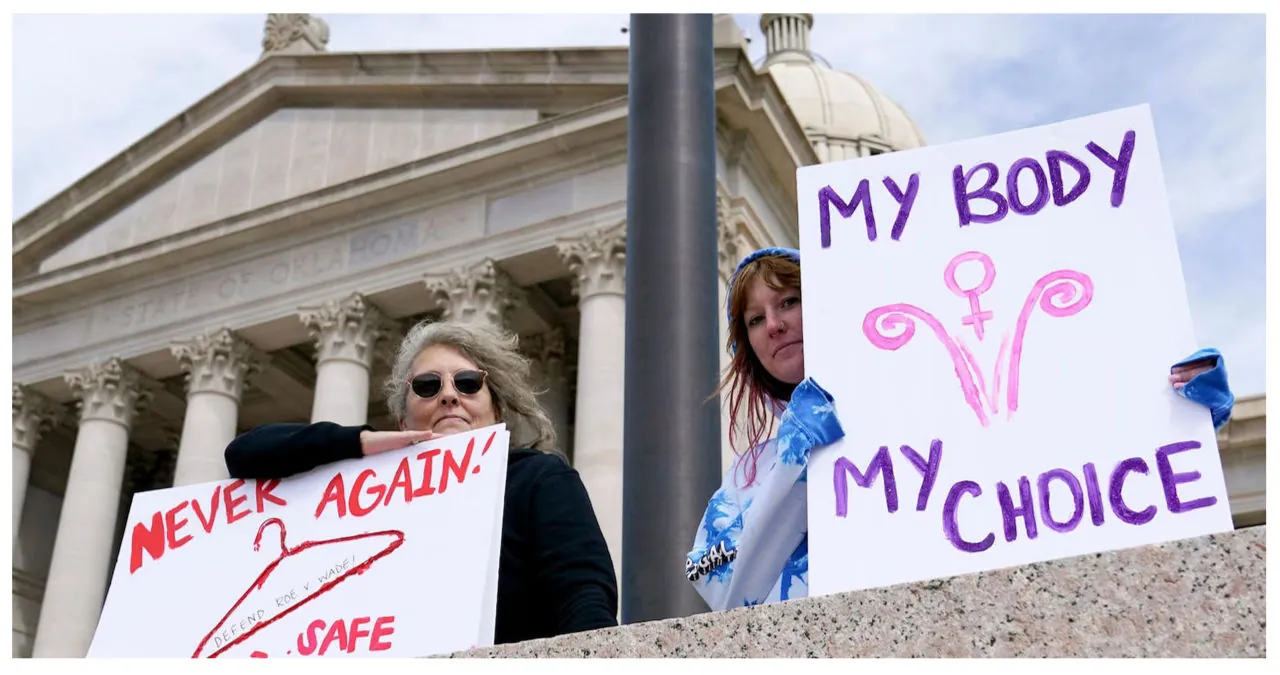Aiexpress – The U.S. Department of Health and Human Services has stated that an Oklahoma hospital did not breach federal law by instructing a woman with a nonviable pregnancy to wait in the parking lot until her condition deteriorated enough to meet the criteria for an abortion, in accordance with the state’s stringent ban.
Jaci Statton, a 26-year-old woman, was one of the many who took a stand against the abortion restrictions imposed by Republican-led states following the Supreme Court’s decision to revoke the nationwide right to abortion in 2022.
Statton chose not to participate in a lawsuit but instead filed a complaint with the Department of Health and Human Services using the Emergency Medical Treatment and Labor Act (EMTALA). This action was taken over a year after the Biden administration mandated hospitals to offer abortion services in cases where the mother’s life is in danger. The administration argued that EMTALA takes precedence over state abortion restrictions that do not include sufficient exceptions for medical emergencies.
The Biden administration’s rejection of Statton’s claim adds to the ongoing debate on the application of EMTALA following the Supreme Court’s decision to overturn Roe v. Wade. This highlights the challenges that reproductive rights advocates face when fighting against state abortion bans.
In early 2023, Statton discovered she was pregnant and soon after, she started experiencing intense pain and nausea. Medical professionals in Oklahoma informed her that she had a partial molar pregnancy, a condition that, if left untreated, could potentially lead to hemorrhaging, infection, and even death.
According to the complaint, Jaci was informed by healthcare providers that they would only be able to perform an abortion if she was experiencing a severe medical emergency, such as being on the brink of a heart attack or actively crashing. In the meantime, the best option they could offer was for Jaci to wait in the parking lot, so that she would be in close proximity to the hospital in case her condition worsened.
Abortion remains illegal in nearly all cases in Oklahoma. Nevertheless, the state’s Supreme Court recently reaffirmed in a ruling that the state constitution ensures a woman’s right to have an abortion if it is necessary to protect her life.
Statton and her husband chose to travel out of state to have an emergency abortion instead of waiting for her health to decline further.
The Centers for Medicare and Medicaid Services, operating under Health and Human Services, notified Statton in October that their investigation was unable to confirm a violation of the emergency care federal law.
The letter expressed gratitude for bringing the matter to our attention.
The Center for Reproductive Rights, representing Statton, has confirmed that her complaint has been denied. The center did not disclose the reason for the delay in making this denial public. In December, an attorney for the center informed The Associated Press that they had no updates to share publicly at that time.
According to Rabia Muqaddam, a senior staff attorney with the center, EMTALA was established to safeguard the right of every individual to receive necessary treatment for an emergency medical condition, regardless of their residence or the specific type of care required. Muqaddam expresses deep concern over the fact that patients facing a situation similar to Jaci’s are being denied the care they urgently need.
The Health and Human Services spokesperson did not respond to an email request for comment.
The Center for Reproductive Rights is currently involved in ongoing lawsuits in Idaho, Tennessee, and Texas. These lawsuits are not aimed at overturning the abortion bans in these states. Instead, they are seeking clarification from the state courts regarding the specific circumstances under which patients can legally obtain an abortion.
In a recent development, the Supreme Court has granted permission for Idaho to implement its stringent abortion ban, even in cases of medical emergencies. This decision comes as a separate legal battle is ongoing. The justices have scheduled arguments for April and have temporarily suspended a lower court ruling that had previously halted the Idaho law in situations involving hospital emergencies. The federal lawsuit, initiated by the Biden administration, serves as the basis for this decision.
In a recent ruling, a three-judge panel in New Orleans stated that the administration does not have the authority to utilize EMTALA to mandate hospitals in Texas to offer abortions for women who face life-threatening situations during pregnancy.

